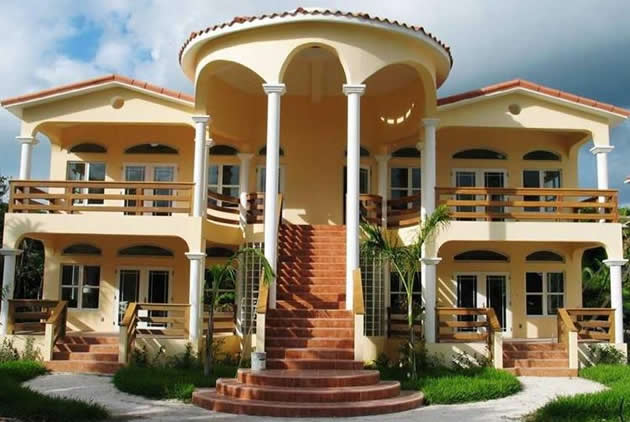Property market: No buyer’s paradise

 Monica Cheru-Mpambawashe Review Editor
Monica Cheru-Mpambawashe Review Editor
In spite of the economic challenges and prices coming down in other sectors of the economy, the field of property is not at all a perfect buyer’s paradise, players in the real estate industry have said.
“Business is low. In fact things have never been so bad. But prices remain high because most property owners are rigid in their expectations. When demand is low prices should come down, but that is not happening,” said Property Heights Real Estate Mr Edson Mutodzwa.
“Look at the CABS project in Budiriro which is struggling to get takers. The prices are high for the current economy.” Houses in high density areas like Chitungwiza and Glen View sell for $20 000 upwards with properties in middle range areas like Mainway Meadows going for between $55 000 and $80 000.
Benq Properties principal registered agent Mr Herbert Masendeke said 2015 is a low point when compared to the past few years. “Things are real slow. We had a property boom in 2011 /12 which I think was fuelled by the currency change-over and the availability of cash on the market. There was a bit of money and properties moved,” he said.
The players in the industry appear to be caught between a rock and a hard place as buyers can only afford low prices and sellers demand high ones. A property manager who declined to be identified said the reason why most property owners are not willing to accept depressed prices for their properties is because they believe that the current situation is temporary and things are on the brink of turning around.
“People are afraid of selling their property for a song today then finding that something happens overnight and there is money circulating and suddenly prices will sky-rocket. Anyone who can would rather hold on. I think that is what is keeping the prices of properties high and beyond the reach of many people.
“On the other hand you have buyers who just do not have the money and want something that suits their pocket. So you have a lot of negotiations and deals that are not closed because the parties just cannot find common ground,” she explained.
But in cases where the seller has no option but to put the property on the market the buyer with the money can practically call the shots. “There is just no money so if someone needs to sell then they will just have to take the best offer on the table and these days that may just be one offer,” the property manager said.
Mr Herbert Magaya concurred saying scarcity of cash on the market has forced some parties into barter trade. “You now have deals in which people trade real estate for cars with maybe a cash component or none. There is just no money,” he said.
The players also said the real estate business had been hit by other factors. Said Mr Mutodzwa: “The banks have taken business away from the estate agents. They are not giving mortgages freely but only for their own development projects. This means that there is no money for buyers who would want to make a free choice.”
Research on the market showed that there is one commercial bank offering mortgages where a client identifies a property of their own choice. To qualify one should have a minimum gross monthly salary of $1 500 which puts the opportunity beyond the reach of most workers including the majority of civil servants who make up a sizeable chunk of the formally employed people in the country. The director of another estate agency said the advent of co-operatives has also changed the landscape for the industry.
“Now everyone opts to join a co-operative and build their own home rather than buy one. It is good because people need accommodation of their own. The only problem is that many have fallen prey to land barons and they are losing everything.
“I think that the Government should consider having registered estate agents involved in land development programmes even if they are for co-operatives.
“I know that some unscrupulous agents have also fleeced the public but there is more regulation in our sector and clients get compensated unlike the victims of the land barons who are left counting the costs when their homes are demolished or the promised stands never materialise at all,” he said.
Currently the City of Harare authorities are struggling to deal with the mess created by land barons which has seen some people building houses in unsuitable lots. Recently the city embarked on demolitions with about 40 houses being destroyed before they were stopped by the responsible minister.
Nine people have been arrested so far with more expected to be brought to answer charges of illegal sale of state land. The estate agency director also said the fact that there are too many people who do not own houses in Zimbabwe makes it impossible for a buyers’ paradise to occur because demand will remain high especially in the low market segment and once prices get into the affordable range demand will shoot up again.
“If say, you were to have three-bedroomed houses going for $15 000 today with a reasonable credit line, the demand would be instantly huge and prices would once again go up to the same levels they are at.” Harare has a housing backlog of 500 000. The agents said the same situation is being experienced in the rentals market.
“You can place an advert in the paper and not get even one response. I am not talking about people who show interest then decide not to close the deal.
“I mean that you will not even receive one call from someone making enquiries about the property. Just look at the number of houses being advertised especially in your Thursday paper,” said Mr Edson Mutodzwa.
“Right now up to 60 percent of rental space is vacant. It is the same rigidity on the part of the owners just as in the selling field. They do not seem to want to realise that prices are coming down in all sectors and the property sector cannot be different. So the buildings are vacant.”
Mr Herbert Masendeke said the rentals have been affected by the number of residential developments. “It is difficult to get a tenant these days. I will give you an example of a property I own in Greencroft which went for about $1 200 a month in 2012.
“These days I am struggling to let it out at $900 a month. I think now people are working hard to secure land then immediately put up a structure then go to live there while they develop it so very few tenants are looking for places to rent.”
Recently Government announced 30 000 houses built in the recent past against a target of 213 000 by 2018.










Comments